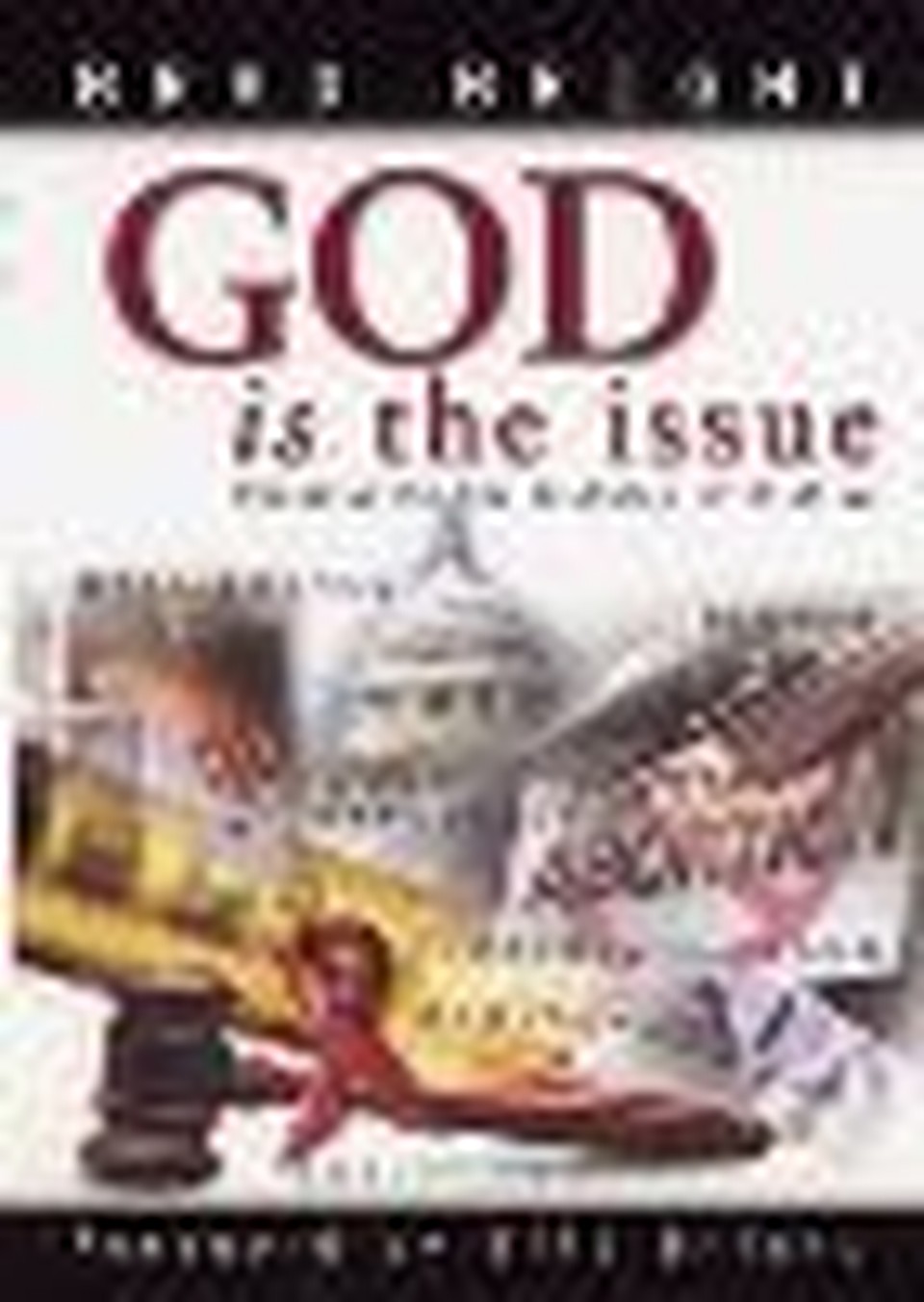Brad Bright: God is the Issue in Election and Society

In his book God is the issue, author Brad Bright submits that the reason Christians are losing the battle for the hearts and minds of our country is because of a misplaced focus. “As long as we are trying to suppress symptoms, we will never win the war.”
Bright explains that the underlying disease of our culture is an inaccurate God-concept that has led to the “symptoms” of immoral behavior that pervade society. “What we believe about God will determine how we live and relate to those around us.”
Through God is the issue, the son of Campus Crusade for Christ founder, Bill Bright, provides a game plan for distinguishing between cause and effect. He says his approach models that of Jesus and the apostles. “They were masters of reframing the issue.”
Bright cites the example of the Pharisees’ attempt to set Jesus up through questioning him about the payment of taxes. “Immediately after telling them to ‘give to Caesar what is Caesar’s, he follows up with ‘and to God what is God’s.” Jesus used the issue at hand to tell them about the greater issue. “He cared too much to let people miss the main point, which is God.”
Politics taught Bright to identify a setup and how to reframe an issue rather than react to it. He worked as an aide to U.S. Senator William Armstrong of Colorado, as a deputy director of the National Republican Congressional Committee, and as director of a foundation to promote volunteerism as an alternative to federal government programs.
In order to control the cultural debate, Bright says that Christians must stay focused on the message. “The operating premise here is summed up in the often-heard political response, ‘That’s a good question, but I think the real issue is…’ In other words, instead of answering the question asked, view it as an opportunity to talk about the issue of God.”
He provides an example of a friend reading the Bible in a public place. She was approached by a man who asked her “how she could possibly believe the Bible to be true since all it was a compilation of stories taken from other religious traditions.” Bright says that instead of getting defensive, his friend responded with a question of her own. “She asked the man how he knew the Bible took stories from other religions rather than vice versa.” The man became annoyed and walked away.
Brad explains, “The point is this; when you sense someone is being disingenuous, never feel obligated to answer the question. It’s an opportunity to point a person toward God.”
Facing the current political climate, Brad offers one litmus test for selecting candidates.
“Jesus said to go into all the world and make disciples and teach them about God and who God is. Anyone who is going to try to prevent me from doing that is who I am going to work to get rid of. Anyone who is going to help me do that, I’m going to support.”
He suggests that voters look at the voting records of candidates. For example, one can research representatives’ records on the justices who they supported. He says to look at where a candidate stands on issues related to faith, such as restricting faith in public arenas and whether they support faith based initiatives.
Bright says his hope for this book is to help educate those who “desire to bring about wholesale change within American culture.” He encourages people to do this wherever their natural platform is, whether in their neighborhood, at work, or at the soccer field.
“When the subject of hate crimes comes up, we respond by talking about hate crimes against people of faith, like at Columbine. When the subject of tolerance arises, we talk about tolerance of all speech, including religious speech,” Bright explains. “The point is to bring the issue back to the God of the Bible.”
Learn more about God is the issue at www.campuscrusade.com
Originally published November 02, 2004.




